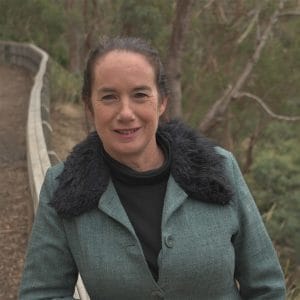
The newly appointed Chief Executive Officer of AFPA NSW, Sue Grau, has announced a major survey of the capacity of NSW’s forest industries to meet the needs of the growing NSW population in delivering both the plantation and native forest timbers vitally needed for housing and office construction.
Ms Grau said, “The current building frenzy in Sydney, Wollongong, Newcastle, the Central Coast and the inland NSW cities has thrown into sharp relief the challenge we have in ensuring our state is able to obtain enough timber. The post-isolation building boom, combined with a sharp fall in imported timber, has revealed how urgent the task is to grow the plantation timber estate in NSW and ensure sustainable native forestry continues to avoid shortages in the years ahead. We should be far more self-reliant. Although often taken for granted, timber products are as vital to our communities as food and fuel.”
“Forest industries are a key industry in NSW, employing 21,000 people across the value chain and adding $7 billion of economic activity annually. They support jobs ranging from tree growing, to harvesting and replanting, to sawmilling, panels making, and paper and cardboard manufacturing and underpin regional NSW towns stretching from Lismore and Kyogle, to Oberon, Tumut and Tumbarumba, Narooma and Eden.”
“Our plantation softwood estates and sawmills produce the framing for our homes and our renewable, sustainably managed native estate provide the appearance grade hardwood for our floors and stairs.”
“The first job for AFPA NSW, in its role representing the whole forest fibre value chain, will be to bring to Government a complete profile of the industry and with it, forecasts of the coming demand gap in both hardwoods and softwoods. We will then work with Government on measures to help avoid major shortages such as we are experiencing now.”
“As well, I plan to illustrate the enormous upside a growing forest industry can deliver to the vital work of decarbonising the NSW economy. Rotational sustainable tree growing for production draws in greenhouse gases which continue to be stored in the frames, floors and packaging products we produce in the state.”
“This has been recognised by the world’s leading scientific body advising the UN on climate change; the Intergovernmental Panel on Climate Change (IPCC)”:
A sustainable forest management strategy aimed at maintaining or increasing forest carbon stocks, while producing an annual sustained yield of timber, fibre or energy from the forest, will generate the largest sustained mitigation benefit. – IPCC 4th Assessment
Interim Chair of AFPA NSW, Steve Dadd said, “The Berejiklian/Barilaro Government has shown it is a major supporter of forest industries and understands how vital they are to the state’s economy. We look forward to engaging with the Government, and indeed all NSW members of Parliament, to help build an even more vibrant future which will benefit all those in New South Wales.”
The original media release is here: Download
